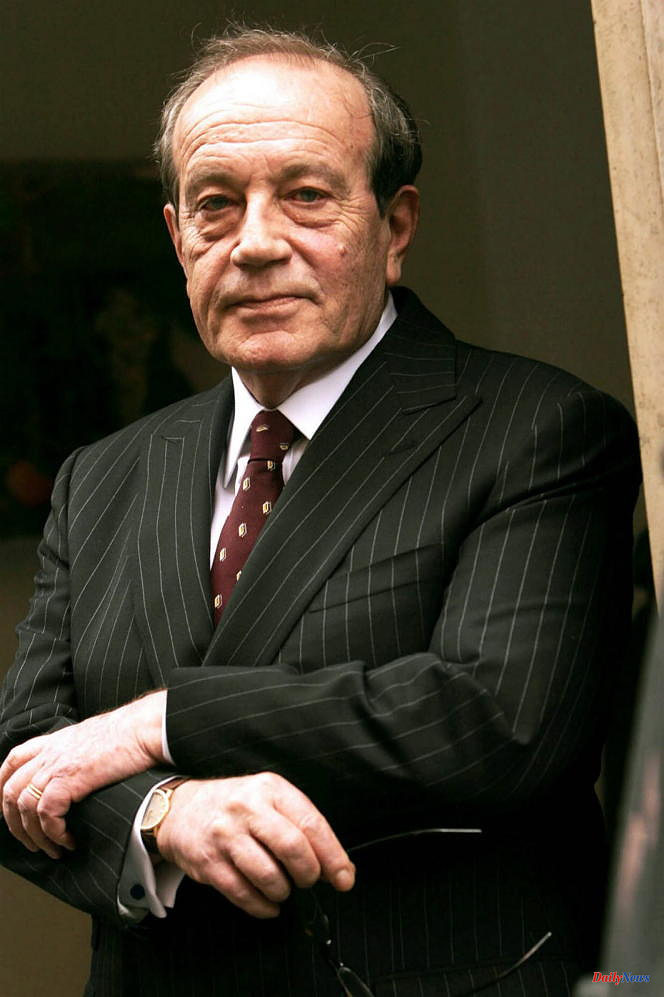Giorgio Ferrara died in Rome Thursday, May 18, at the age of 76. His surname has long been linked to the history of the Italian Communist Party, of which his father, Maurizio Ferrara (1921-2000), was a key figure. His younger brother Giuliano (b. 1952) founded the liberal daily Il Foglio, which had a completely different political tenor. Giorgio Ferrara took a very different path, totally artistic.
Quickly noticed by the greatest masters of Italian theater of the 1960s – Luchino Visconti (he was his second assistant on his film Ludwig), Giorgio Strehler, Luca Ronconi – he hesitated between cinema and theatre, just like Visconti. His marriage to the actress Adriana Asti, sixteen years his senior, whom he met during the New York production of Roland furieux by Luca Ronconi, will direct him mainly towards the stage, although he has also made several films, for cinema and television: fiction, but also investigations and portraits. He notably directed it at the cinema in Un coeur simple (1977), after Gustave Flaubert, which was presented at Cannes and won the Silver Ribbon for the first work in Italy, and in Tosca e altre due (2003), which he co-wrote with comic actress Franca Valeri and Visconti's privileged screenwriter, Enrico Medioli.
Giorgio Ferrara's mother, the great resistant Marcella De Francesco (1920-2002), was the secretary of communist leader Enrico Berlinguer. It was in the USSR that, following his father, appointed correspondent of the communist daily L'Unita, Giorgio Ferrara began his studies in Russian. And during his various activities as artistic director - in particular the Spoleto festival, which he directed until 2020 and revived from its ashes, after the difficult period which followed the death of its founder, the composer Gian Carlo Menotti (1911- 2007) — he often returned to Russian culture.
decisive experience
His eclectic taste and his imagination allowed him to offer prestigious programs, which brought together Bob Wilson, Jeanne Moreau, Anouk Aimée, Jiri Kylian, Isabelle Huppert, Benoît Jacquot, Lucinda Childs. His own stagings, both classic and unusual, for which he called upon leading designers of Italian cinema and theater (such as Dante Ferretti, collaborator of Fellini, Pasolini and Scorsese, or Piero Tosi, costume designer of Visconti), were marked by an aesthetic research in keeping with the era of creation, as evidenced by his production of the "Da Ponte trilogy" (Cosi fan tutte, The Marriage of Figaro and Don Giovanni).
He was not afraid to stage contemporary works (Gogo no eiko, by Hans Werner Henze, based on a novel by Yukio Mishima, known in French as Le Marin rejected par la mer, or The Turn of the Screw , by Benjamin Britten, after Henry James) and, above all, to encourage musical creations (several operas were commissioned by him from the young composer Silvia Colasanti).
Before this decisive experience in Spoleto, then the direction of the Teatro Goldoni in Venice, where he programmed both Monica Bellucci as Maria Callas and Isabelle Adjani as Marilyn Monroe (in a monologue by Olivier Steiner), he left his mark on the Institute cultural center in Paris, substituting theatrical projects for traditional conferences.
Very deeply attached to French culture, he had, before leaving Paris, directed, following the directives of a project by Giorgio Strehler, with the help of Myriam Tanant, the Memoirs of Goldoni, in French. For the last staging by his friend Luca Ronconi, in 2017, he surprised the public with his whimsical and poignant performance by interpreting himself the role of the male protagonist in La Danse de mort, by Strindberg, opposite to his wife. They represented their conjugal relationships on stage with caricatural and dreamlike features. But it was difficult for anyone who knew them not to be disturbed by this astonishing display of their intimacy. It was a way of proclaiming that there was no other life for both of them than in the spotlight.












